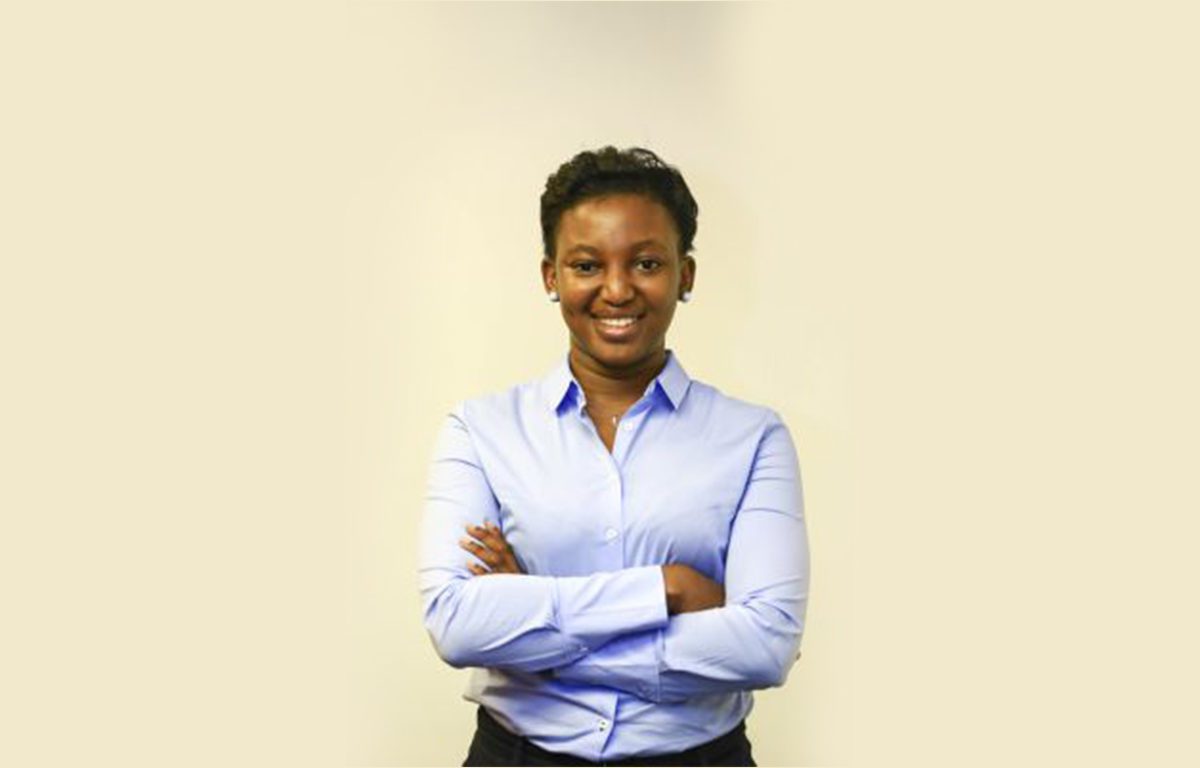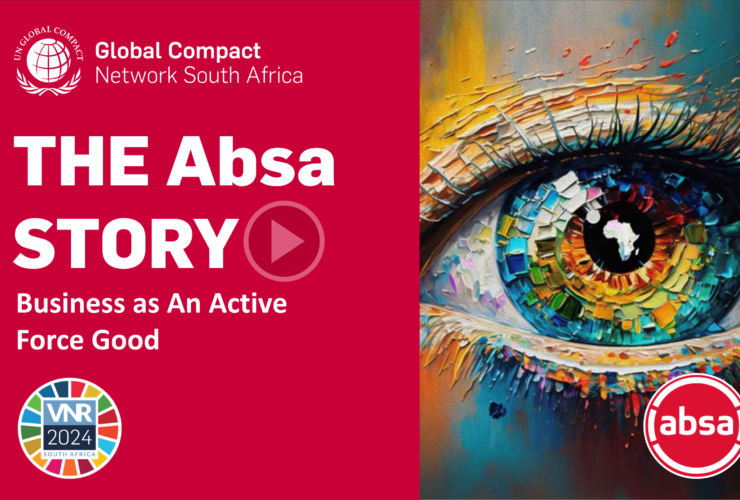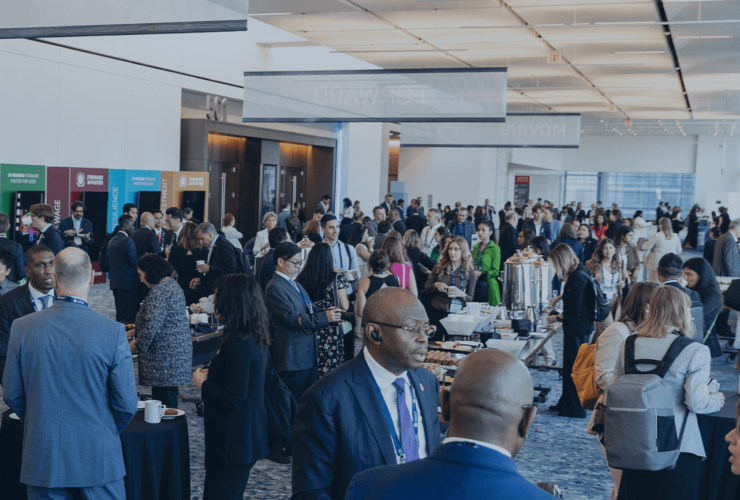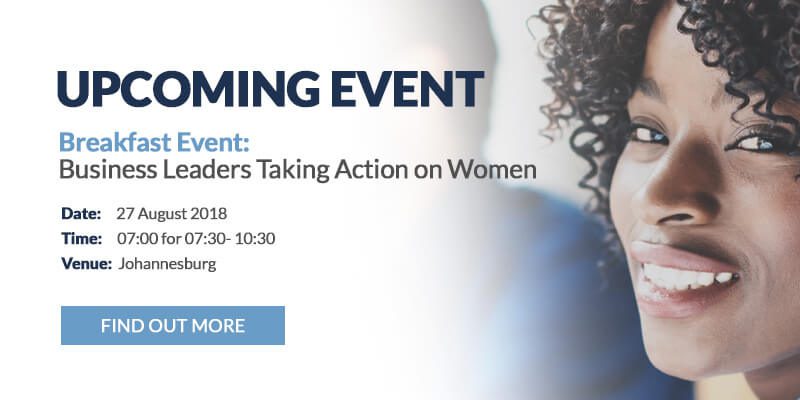[Johannesburg, 16 June 2021] The annual UN Global Compact Leaders’ Summit mobilizes and connects thousands of business leaders, policy makers, civil society and academia from all over the world to take action on the Sustainable Development Goals (SDGs).
As the COVID-19 pandemic will have a lasting impact on youth, in order re-build a resilient economy it is important to bring forward inclusive young voices as these are crucial to economic recovery efforts.
A Global Compact Network South Africa hosted panel, moderated by De Beer’s Tshegofatso Kole, discussed how young people can be involved in leadership decisions; why companies should prioritize their young employees; the importance of innovation in accelerating the SDGs; and how young people can contribute to building a resilient economy.
Tshegofatso is the Financial Controller for De Beers Consolidated Mines (DBCM) under De Beers Group – Managed Operations based in South Africa. Her journey with the Group started when she was a bursar at Anglo American in 2008 and later as a BLAST Graduate in 2012.
Tshegofatso, who is a qualified Chartered Accountant, worked as a Commercial Manager of Voorspoed Mine where she was not only responsible for the commercial day to day running of the mine but was also responsible for leading all commercial workstreams to ensure a successful closure of the Mine in December 2018. She also worked as a Financial Analyst in the Group Business Planning and Capital Investments team and a Financial Reporting Accountant for De Beers based in the UK.
As we commemorate Youth Day in South Africa, we asked Tshegofatso a few questions on her role as a young person working in business:
As a young South African woman, how have you been able to ensure your success in Corporate South Africa?
One always needs to remain true to themselves. The Corporate world requires resilience and self-belief. In addition to that, the corporate world needs people who are willing to learn. Success for me, is not defined by the role I am in but through my ability to demonstrate continuous growth. I take opportunities when they are presented to me. I equally take learnings from experiences that were not great, and I use those learnings to help pave the next steps I take.
What do you believe is the role of the youth in business and the economy, especially in a post COVID-19 world?
A post COVID-19 world requires collaboration across all ages and stakeholders. COVID-19 has taught us that we are stronger if we all work as a unit. All participating parties need to embrace their strengths. Young people need to embrace the strengths that they bring to the table. We have social media as a tool and if used constructively, we can facilitate conversations. Social media helps embrace diversity. Young people are energetic, agile and resilient. But such needs to be paired with experience. Our role as young people is to learn and listen. Our role is to bring our experience with technology to help accelerate solutions. Unfortunately, in South Africa, our unemployment rate highlights our plight. We all have different challenges and because of that, we try solving those individually. Perhaps this is the time where we come together and rebuild our broken economy. There is value to be unlocked with the SDGs and that value rests on collaboration.
You participated in 2019/2020 UN Global Compact Young SDG Innovators Programme, how was that experience for you?
Three words: Inspiring, humbling, and fulfilling. I had never fully appreciated the SDGs prior to the programme. I used to believe I understood the social ills we are facing but I did not appreciate the magnitude of them. To be in a room with young minds, eager to solve problems, was inspiring. The 10 months of the programme were not enough to solve all problems, but they were a catalyst and motivator.
How do you think young leaders can utilize innovation and the SDGs to positively impact business and build a resilient economy?
First and foremost, we need young leaders who understand that sustainability is our way of living. Previously, sustainability was treated as an isolated project. Times have shown us that we need to embrace sustainable practices in our day to day lives. COVID-19 pushed us to be innovative in approach. Leaders need to cultivate that same attitude and approach when working towards building a resilient economy. Leaders need to embed the SDGs in their culture and filter this across all departments. We may not solve for all 17 goals but if we identify SDGs that align to our values and strategy, solving for these becomes part of our operations.
How have you as a young person, been able to innovate in your industry/company?
I am part of the De Beers Youth Forum and as a team we approached the leadership to help drive our HIV campaign. We had identified complacency from ourselves and colleagues when it came to people testing and knowing their status. We decided to own this campaign and help change the narrative and stigma around HIV. Our hashtag was #NoShame. This was simple but made an impact. We must remember that innovation is about doing things differently and achieving positive outcomes.
What does Youth Day signify to you? How do you believe the Youth of 1976 paved the way for your success?
I must be honest. Youth day used to be a significant day when I grew up and I used to religiously wear school uniform. But as you grow and understand the problems we are faced with as young people, the significance of the day itself gradually reduces and it is unfortunately a result of how we have chosen to celebrate the day over the years. The young people of 1976 were resilient. They worked as a team towards one set purpose. Unfortunately, in SA, young people are faced with so many conflicting problems, but it remains a dream for me that one day we can all work together in solving the problems we are faced with.
The young people of 1976 allowed me and my peers to have a voice. They used their voices for me to have an education. But they also forced the world to appreciate that young people can mobilise change. I have been given so many opportunities based on views of a young person being sought.
What is the biggest driving force behind your ambition/aspiration?
I live to make my parents proud. I am so blessed to have parents who have allowed me to seize every moment. They have made me believe that I can achieve anything I set my mind to. I want young girls to see me and see a dream that has become a reality. I push as hard as I do because I want to inspire those around me to do the same.
For more information on the Global Compact Network South Africa and our work with young people in business, please visit www.globalcompactsa.org.za
To participate in the UN Global Compact, please follow this link https://www.unglobalcompact.org/participation
Contact:
Global Compact Network South Africa
Nelisa Dlamini
Media and Communications Coordinator
Email: nelisad@globalcompactsa.org.za






